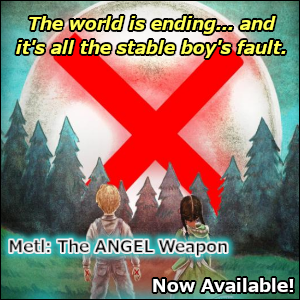The directors of the Game of Thrones TV show said “themes are for 8th grade book reports.”
Well look where that got them!
Let’s go over why they’re wrong, why themes are awesome, then practice some ourselves.
During the last stream, a subscriber requested that we go over why themes are not just for 8th grade book reports.
This topic comes from an interview with the showrunners for the Game of Thrones TV show, who said this in an interview from 2013:
The story lines move forward and dig deeper as the episodes progress but rarely circle back and almost never pause for reflection. When I asked Benioff and Weiss if it was possible to infer any overall intentionality to the upcoming 10 episodes, they sneered. “Themes are for eighth-grade book reports,” Benioff told me.
And we all know how the ending of that series turned out
So today, let’s talk about themes! Let’s go over three things:
- What are themes?
- Why are they important? (not just 8th-grade book reports)
- How do we use themes to make our stories better?
#1. What Are Themes?
A theme is an underlying idea/comment on life in a story. An easy way to find the theme is to say “it’s a story about ___” (and fill in the blank with only 1-2 words)
There are many different types of themes, here’s just some:
- Friendship/love: Harry Potter
- Prejudice: The Fifth Season
- Human nature: The Lord of the Flies
- Death: The Fault in Our Stars
- Abuse: Carrie
- Survival: Hunger Games
Also EVERY STORY has a theme! That’s what makes it a story
- A story that’s 500 pages of staring at a wall:
- Theme: the mundane nature of life
- Seemingly random things happen
- Theme: unpredictability
- Elmo’s ABCs
- Themes: teaching children, literacy, something scary can be fun actually
– Lastly, it’s important to keep in mind that themes are NOT some sort of “secret” hidden meaning you have to analyze/guess
– A good theme is as obvious as a good character, setting, plot
– Authors don’t write stories in a vacuum, they write them based on their life experience/culture they live in, and themes reflect that
#2. Why Are Themes Important? (Not Just 8th-Grade Reports)
Themes glue your story together, make it feel cohesive rather than just a string of random events.
For example, the theme of “survival” permeates every aspect of the Hunger Games:
- Katniss hunting at the beginning
- Going against her survival instincts to protect her sister
- Fighting to survive in the games
- Surviving after the games by pretending to be in love
- Imagine if instead of a death tournament, it was a beauty pageant, but the rest was the same. Suddenly the theme is completely different, and the story doesn’t feel as cohesive
– And that’s why themes are important right there: they make your story more enjoyable/satisfying
– A story with clear themes feels smooth, whereas a story with unclear/mismatched themes feels bumpy and confusing
– And this was exactly the problem in the Game of Thrones TV show: the themes became unclear/mismatched
- For the first seasons, the themes of “real life is not a fairy tale,” “hope among despair” and “redemption” were strong/clear
- Then in the last seasons, they became muddled: fairy tale logic, all hope was extinguished, and no one was redeemed
- If the showrunners had continued the themes from the beginning, then it would’ve felt much more cohesive/satisfying!
#3. How Do We Use Themes In Our Own Stories?
Very rarely do you want to write a story trying to force a certain theme into it. That usually comes across as preachy, stilted, or boring. As long as you just write a good story, a good theme will naturally come from it.
Instead, what you want to do is…
Step 1: Be aware of your story’s themes
- Lots of people like to think they’re not going to bother with themes, they’ll just write their story and not think about them
- But remember, EVERY story has themes, whether you want it to or not! So make sure your themes are what you want
- For example, if you’re writing a story about a girl who defeats an evil wizard, HOW does she defeat him? By trusting her friends? By reconciling with her sister? By uncovering her own hidden strength? By taking up smoking and alcohol???
- Each one plays into a different theme, so be aware of which one you’re choosing and then…
Step 2: Have the theme touch on different aspects of your story
- Once you’re aware of a theme in your story, try to have it play into different parts of the plot
- Doing this will make it feel more cohesive/satisfying
- For example, if the girl defeats the wizard by trusting her friends, touch upon the theme earlier by having different friends betray her, or having her help her friends do something else
- Doing this will help strengthen the theme of “friendship”
Step 3: Try not to do too many themes at once
- Putting in too many themes will make the story messy/bumpy
- It’s far better to have 1-2 themes that are very clear/strong
- Don’t be like the Game of Thrones TV show!
After that we spun the Wheel of Themes and it landed on this: Capitalism is the best possible system for everything.
Here’s the story we wrote for that theme:
Once upon a time there was a bear named Bert. And he was a very sad bear, because he did not ever get to eat any honeycomb. All he got to eat were twigs and bushes on the ground because he was too weak to climb the trees and too scared of getting stung by bees.
But then, one day, another bear named Alana came to visit Bert. She told him something amazing! If Bert was willing to trade her some twigs and bush-leaves that he’d foraged, then she’d be willing to trade him some honeycomb. She needed them for hibernation to plug up her poop-hole, but she didn’t know where to find the good ones.
Bert had never grabbed twigs and bush-leaves so quickly before! He gave them to Alana, and then she climbed up a tree and smacked down a fat whopper of beehive for Bert to feast upon. The bees angrily buzzed away, and Bert happily gnawed on the juicy, waxy, sweet skin that stuck to his paws like last hibernation’s poop.
Alana was so impressed with Bert’s high quality foraging that she told all the other bears about his services. Before Bert knew it, all the bears of the forest were coming to him for their pre-hibernation cloggings, and he was amassing more honey than he could even eat.
And everyone was happy. Bert got his honey that he could’ve never gotten otherwise, and the other animals got to use his years of expertise from picking twigs and leaves. The forest had its first taste of the free market, and thrived from then on.
If you want to join us and help write a story by trolling in chat, or share your own writing for feedback, then we’d love to have you join us on Twitch.
And you missed the stream, you can still watch them on the YouTube channel or watch the full stream reruns.
Hope to see you next time, friend!
 Top image: Pakutaso
Top image: Pakutaso
